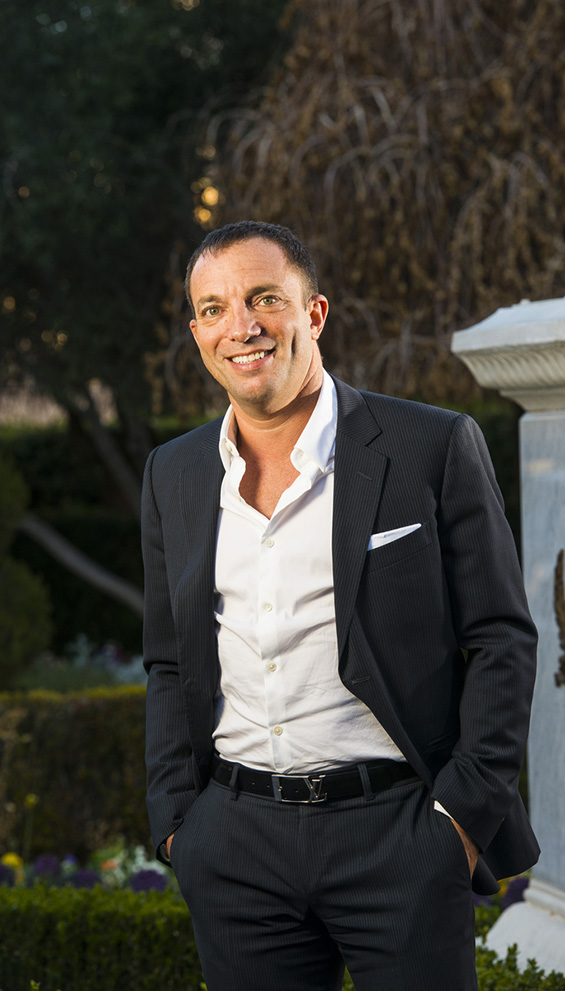Author: Talia Huculak

-
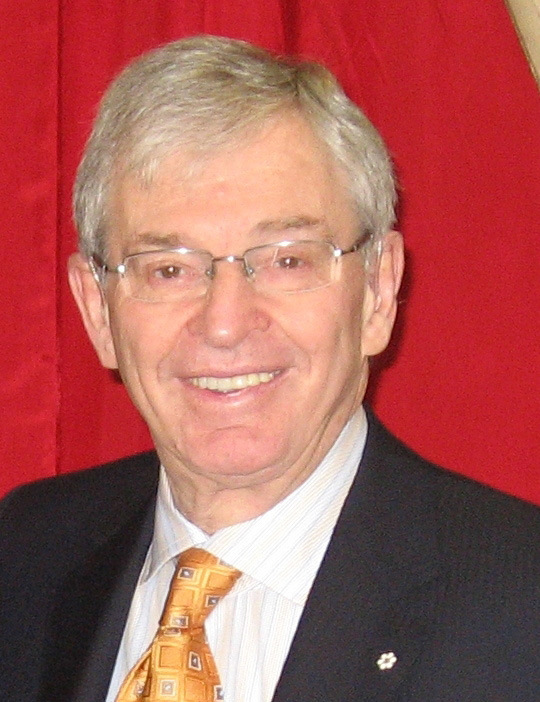 Alvin Segal.Photo Credit : Federation CJA
Alvin Segal.Photo Credit : Federation CJA
Alvin Segal
In 1951, Alvin Segal began working at Peerless Clothing manufacturing men’s suits. In virtually no time, he emerged as one of the most technically knowledgeable people within the industry in the production of fine men’s tailored apparel. A true visionary; Alvin Segal introduced the “engineered suit” into the North American market, reinventing the industry and putting Peerless on the map forever.
When the Free Trade Agreement came into effect in 1989, Alvin seized the opportunity to enter the American market and made a significant investment in machinery, technology and retraining his personnel; employing individuals on both sides of the border. The result was a product of better quality and value and Peerless has never looked back since. Today, Peerless Clothing is the largest supplier of Canadian-made and imported men’s tailored clothing in North America, boasting iconic brands including Ralph Lauren, Calvin Klein, DKNY, IZOD, Michael Kors and John Varvatos—to name but a few.
An industry pillar, Alvin is President of the Canadian Men’s Clothing Manufacturers Association, played a key role in the inception of the Canada-US Free Trade Agreement and The North American Free Trade Agreement, and served on the Canadian Ministry of International Trade’s Advisory Board.
As the Peerless Clothing empire grew, so did Alvin Segal’s commitment to philanthropy and community. His support of the Canadian Jewish community, Israel, and the Montreal community at large has been nothing short of legendary, particularly when it comes to the arts, healthcare and education. He has been instrumental in supporting the Segal Centre for Performing Arts, showcasing the best in theatre, music, dance and cinema. He has also made major gifts to The MUHC – Montreal Children’s and Shriners Hospitals, Centraide of greater Montreal, Concordia and McGill Universities, the Jewish Public Library and the Governor General Performing Arts Awards.
His support of the community and healthcare is epitomized through his extraordinary gift to the Jewish General Hospital’s Segal Cancer Centre. This state-of-the-art facility, which serves the entire province of Quebec, is dedicated to offering the most comprehensive approach to cancer screening, prevention, care, diagnosis, treatment, support, nutrition and research.
Over the years, the philanthropic work of the Alvin Segal Family Foundation has garnered him numerous honors including the Order of Canada, the Order of Quebec, the Order of Montreal and Hebrew University’s Scopus Award.

-
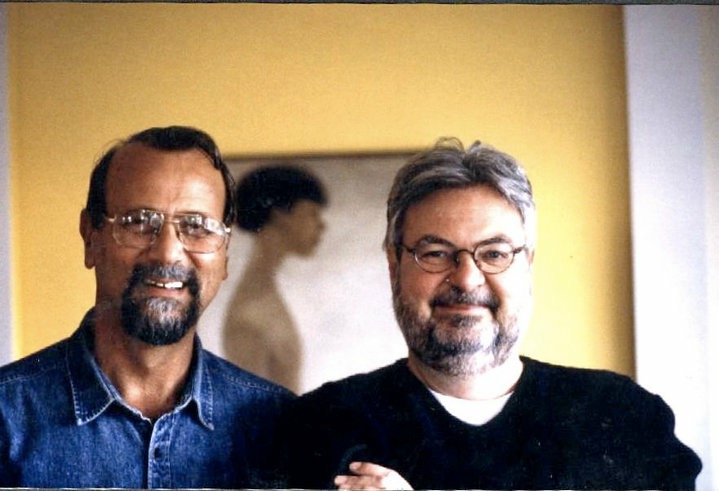 Solly Levy and Michel Tremblay.Photo Credit : Claire Lévy-Boker
Solly Levy and Michel Tremblay.Photo Credit : Claire Lévy-Boker -
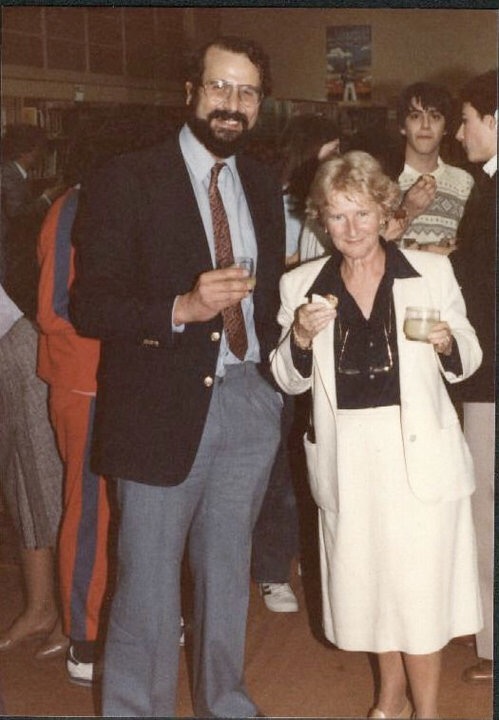 Solly Levy and Antonine Maillet.Photo Credit : Claire Lévy-Boker
Solly Levy and Antonine Maillet.Photo Credit : Claire Lévy-Boker
Solly Levy
A brilliant cultural icon, Solly Levy is a writer, educator, comedian and theatre director; he is also the Founder and Director of the Kinor Choir in Montreal and the Hallel Vezimra Liturgical Choir at the Sephardic Kehila Centre in Toronto. In the early 80s he co-founded the Sephardic musical group Gerineldo and was the male soloist.
Through his many talents, he has strengthened ties between the Jewish community of Montreal and Quebec culture. He is a leading expert in Haketia, a Judeo-Spanish vernacular language once spoken by Jewish communities in Northern Morocco. He has written numerous books in that same vernacular.
Levy has adapted into Judeo-Arabic several classic works of Molière, and of renowned Quebec and Francophone playwrights including Gratien Gélinas, Michel Tremblay and Antonine Maillet. These, which he also directed, were a great success. Levy’s theatrical and artistic work helped fortify intercultural bridges between Quebec’s Jewish community and native-born Francophone Quebecers.
While teaching at the École de Roberval in Montreal, Levy directed classic Quebec plays, including the famous Ti-Coq by famed playwright Gratien Gélinas. Michel Tremblay, Gratien Gélinas, Antonine Maillet and other great francophone writers from Quebec and Canada have personally attended Levy’s adaptation of their plays. They have highly praised his work.
Levy was the subject of Donald Winkler’s A Scattering of Seeds: A Sephardic Journey, film depicting his life after arriving in Montreal. His discovery of the Quebecois literature and culture greatly influenced his teachings.
In the documentary film Les Juifs du Québec: une histoire à raconter, produced by Shelly Tepperman, Levy brilliantly plays the role of Haïm, an old Jewish antique dealer who recounts to a young “pure-laine” girl from Quebec the 400 years of history of Quebec’s Jewish community.
In 2001, the prestigious French magazine L’Express ranked Levy among the top “100 people who move Quebec.” In 2014, he was a keynote speaker at UNESCO’s (United Nations Educational, Scientific and Cultural Organization) International Conference on Judeo-Spanish languages, in Paris.

-
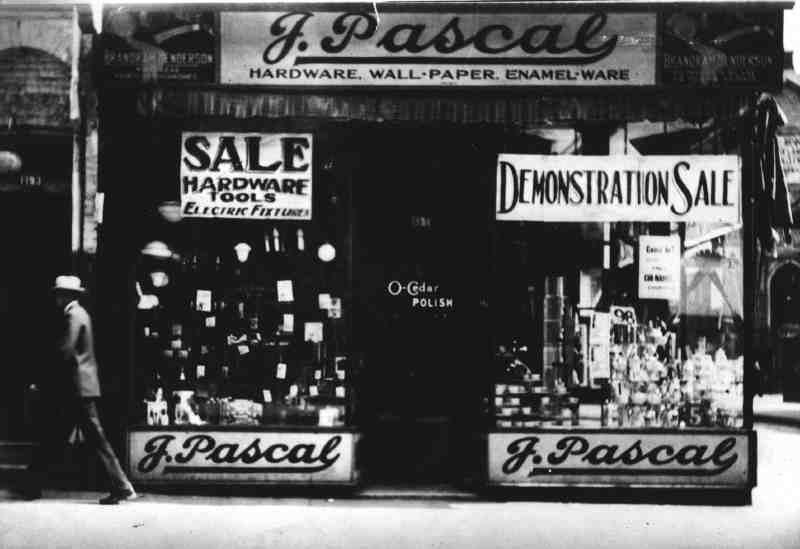 The Pascal storefront on St. Laurent in the 1930s.Photo Credit : Alex Dworkin Canadian Jewish Archives
The Pascal storefront on St. Laurent in the 1930s.Photo Credit : Alex Dworkin Canadian Jewish Archives -
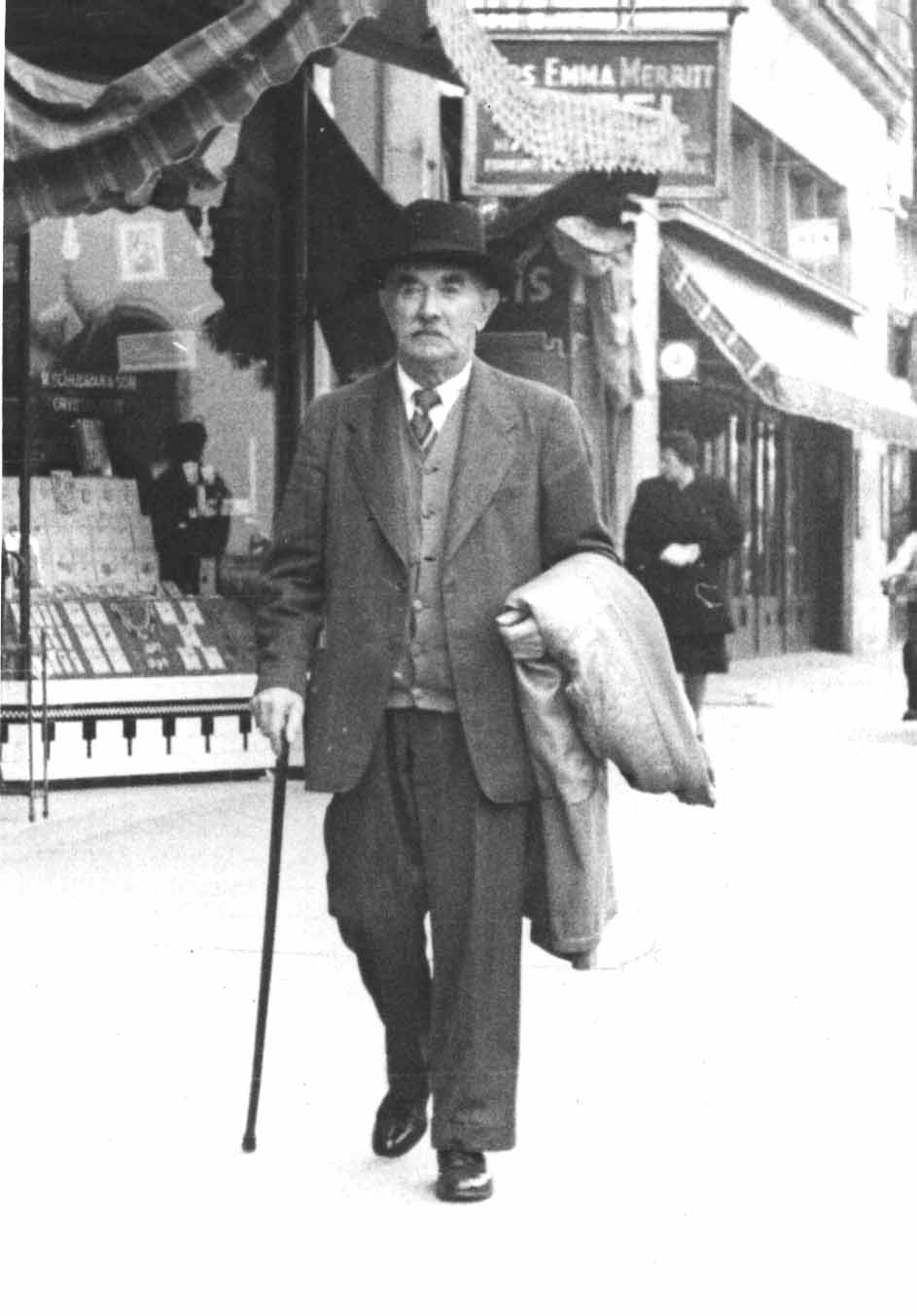 Jacob Pascal in the 1910s.Photo Credit : Alex Dworkin Canadian Jewish Archives
Jacob Pascal in the 1910s.Photo Credit : Alex Dworkin Canadian Jewish Archives -
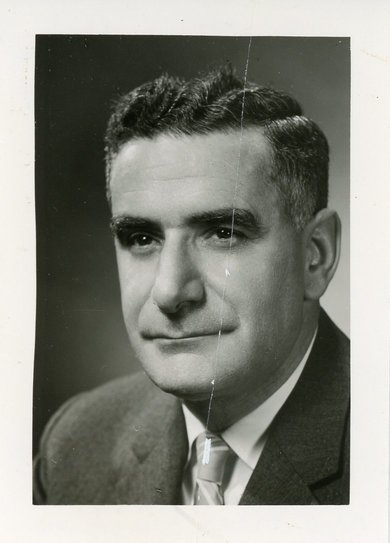 Arthur Pascal.Photo Credit : Jewish Public Library - Archives
Arthur Pascal.Photo Credit : Jewish Public Library - Archives
The Pascal Family
Long before anyone had ever heard of big-box warehouses or superstores, there was a Pascal Hardware in virtually every mall in town. Jacob Pascal opened a small hardware store in Montreal in 1903 and trained his sons Maxwell, Hyman, Cecil and Arthur in how to sell products and serve customers so that they’d come back again and again.
Over the course of 90 years, the chain of Pascal Hardware and Furniture Stores grew to some 26 stores in Quebec, Ontario and New Brunswick, and remained a family-owned business right up to the end. Pascal Furniture outfitted countless homes with fine furniture and electronics, while Pascal Hotel and Restaurant supplies provided specialized products, equipment and machinery to virtually every eatery and hotel around.
As the Pascal family grew more successful, so did their commitment to social causes, especially when it came to Jacob’s son, Arthur Pascal. Arthur had a long, accomplished association with the Jewish General Hospital, where he served as Chairman of the Building Committee and eventually as President of the hospital in the 1970s.
What’s more, he served on the Executive Committee of Allied Jewish Community Services, was Chairman of the Combined Jewish Appeal, Co-Chair of the Canadian Council of Christians and Jews Quebec Region, Honorary Chairman of the Federation of Quebec Catholic Charities and Vice-Chairman of the Quebec Council of Boy Scouts of Canada. He was also the founding President of the Jewish Community Foundation of Montreal in 1971.
In recognition of his dedication to community service, Arthur Pascal received the Order of Canada in 1976. In 1985, Arthur Pascal was officially inducted into the Canadian Hardware & Housewares Industry Hall of Fame.


-
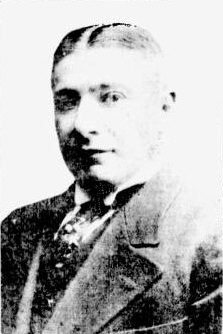 Sam Lichtenhein.Photo Credit : icehockey.wikia.com
Sam Lichtenhein.Photo Credit : icehockey.wikia.com
Sam Lichtenhein
Samuel “Sam” Edward Lichtenhein was a businessman and sports executive who owned the Montreal Royals and the Montreal Wanderers and was responsible for changing hockey from a seven-man to a six-man game.
Lichtenhein was born in Chicago. He moved to Montreal with his parents and three siblings after the Chicago fire of 1871 destroyed his father’s department store. He attended Loyola College in Montreal, and then pursued a career in business.
In 1910, Lichtenhein took over the Montreal Royals of the Eastern Baseball League, and remained the owner until the team disbanded 7 years later. In 1911, he bought the Montreal Wanderers, which had been a very successful franchise – winning four Stanley Cups in the previous decade – but was in trouble by the time Lichtenhein took over. In 1913, as the Wanderers’ owner, Lichtenhein famously approved changing Canadian hockey from seven players to six.
In 1917, Lichtenhein became one of the founding members of the National Hockey League (previously known as the National Hockey Association). Lichtenhein owned the Wanderers until the Montreal Arena burned down in 1918, at which point the franchise closed. In fact, Lichtenhein was famously unlucky with fires, which were responsible for the loss of his fathers’ department store as well as his own hockey and baseball teams’ arenas.
Lichtenhein was married to Huldah Lewin and they had one son, who predeceased them. He was a prominent member of the Montreal Jewish community, and remained in Quebec for the rest of his life, even after the Wanderers franchise closed. He was buried in the Mount Royal Cemetery.


Mitch Garber
Born and raised in Montreal, Mitch Garber began his professional career as a lawyer but moved on to a diverse and storied career in business, ultimately becoming one of the most influential powerbrokers in the gaming, entertainment and hotel industries.
Garber’s first major position was as CEO of PartyGaming, one of the world’s largest online gaming companies at the time, and then, in 2009, as head of Caesars Interactive Entertainment, the newly formed digital gaming and entertainment division of Caesars Entertainment, and since 2013 CEO of Caesars Acquisition Company, owner of the World Series of Poker and six hotels and casinos in Las Vegas , New Orleans and Baltimore.
Mitch is well-known in Quebec for his cross-cultural role on Dans l’oeil du dragon, the French-Canadian equivalent of CBC’s Dragon’s Den, as its first ever Anglophone judge. In 2015, he participated in the TPG led buyout of Cirque du Soleil and became its Chairman.
Speaking to reporter Sandie Renaldo, as part of a feature story on the TV newsmagazine W5, he expressed pride in calling Montreal home, despite living in many other cities around the world: “I wanted my kids to have the same Canadian feeling, the same Quebec upbringing and education that I had and my wife [Anne-Marie Boucher] had.” He is known to be a staunch advocate for bilingualism, urging fellow Anglophone Quebecers to avoid cultural insularity.
Committed to giving back philanthropically, he recently co-chaired Montreal’s annual Centraide campaign, serves on the Board of the One Drop Foundation, and established The Garber Family Post Doctorate Fellowship in Hereditary Cancer at McGill’s Faculty of Medicine, in addition to raising funds for Cystic Fibrosis research with Celine Dion and the late René Angelil, and several other charitable involvements.

-
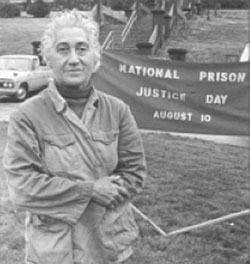 Claire CulhanePhoto Credit : prisonjustice.ca
Claire CulhanePhoto Credit : prisonjustice.ca
Claire Culhane
Claire Culhane – an internationally recognized leader in the anti-war and prisoners’ rights movements – was one of the foremost political activists of her day.
Culhane was born in Montreal. Her parents, Rose and Abraham Eglin, were Russian Jewish immigrants. She had one older brother, Jack. From an early age, Culhane showed a passion for social justice and civil disobedience. In her youth, during the Depression, Culhane was part of the relief movement in Quebec. Later, as a young woman, she joined the Communist Party of Canada and supported an end to the Spanish Civil War. The RCMP file on her activism ultimately spanned almost 50 years.
In 1967, Culhane accepted a one-year government contract to work at a tuberculosis hospital in Quang Ngai City, Vietnam (near Saigon). She intended to use her training as a medical records librarian in Montreal to serve the hospital as an advisor and administrative assistant. She soon realized that the confidential record system she had helped to set up was being repeatedly compromised by the head of the Canadian medical aid team, who was passing along patient information to both the American Embassy and the CIA. She became disillusioned with Canada’s role in the war and left Vietnam in February of 1968, less than two weeks before the My Lai massacre.
Back in Canada, Culhane protested the war in numerous ways. She filed an official protest with the Canadian government, did a 10-day fast on Parliament Hill in Ottawa, chained herself to a gallery chair in the House of Commons, and camped out for 19 days in the cold with filmmaker Mike Rubbo to distribute anti-war pamphlets during their “enough/assez” campaign. She also wrote a book, Why is Canada in Vietnam? The Truth about our Foreign Aid, which helped galvanize the anti-war movement.
Beyond this, Culhane was best known for her work in support of prisoners’ rights; she did not believe in reforming prisons, but in dismantling them. In 1975, there was a hostage crisis at the Lakeside Regional Correction Centre for women, where Culhane volunteered as a women’s studies teacher. Three prisoners who were being sent back to solitary confinement took 15 people hostage, leading to a 41 hour standoff with prison officials; a young guard was accidentally killed by the guards when the emergency response team stormed the premises.
Culhane became a founding member of the Vancouver activist group Prisoners’ Rights Group and, in 1976, joined the newly formed Citizens Advisory Committee (CAC). With CAC, she helped to negotiate the end of the worst riot in 50 years, at BC Pen, but was subsequently barred from entering prisons for many years. She wrote two books about these experiences, Barred from Prison: A Personal Account and Still Barred from Prison: Social Injustice in Canada. Her activism included sit-ins at warden’s offices, picketing on Parliament Hill, hosting a cable TV show called Instead of Prisons, and writing and speaking extensively on the topic of prison as a form of social control.
A biography of Culhane, One Woman Army by Mick Lowe, was published in 1992.

-
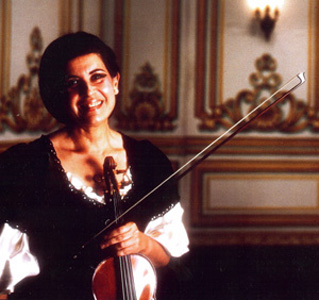 Yaëla Hertz.Photo Credit : Archives of Yaëla Hertz
Yaëla Hertz.Photo Credit : Archives of Yaëla Hertz -
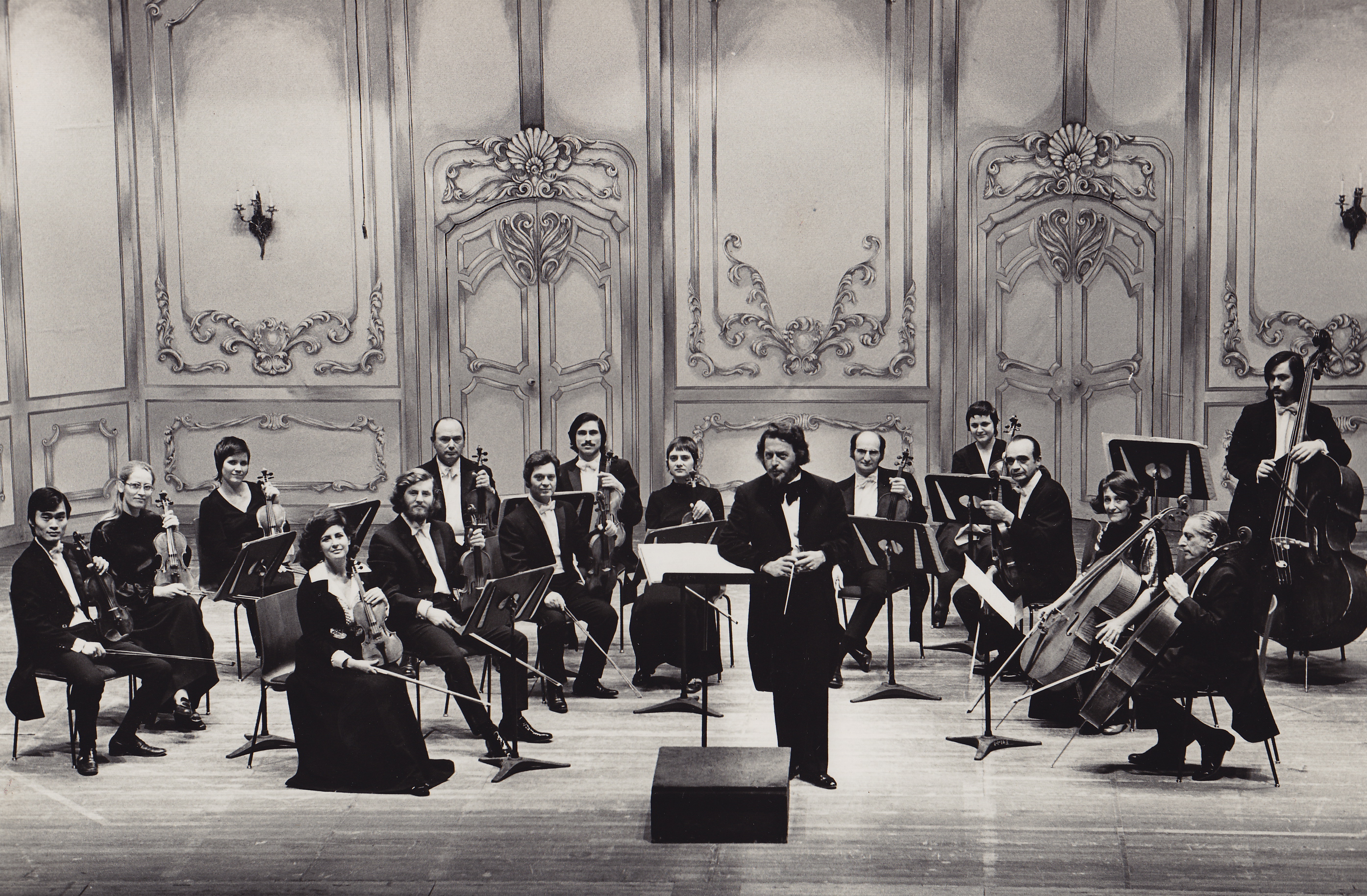 Photo Credit : Archives of Yaëla Hertz
Photo Credit : Archives of Yaëla Hertz -
 Yaëla Hertz at JuilliardPhoto Credit : Archives of Yaëla Hertz
Yaëla Hertz at JuilliardPhoto Credit : Archives of Yaëla Hertz
Yaëla Hertz
Yaëla Hertz – a Sabra who settled in Quebec as a young woman – was integral to the history of classical music in Montreal as a consummate musician, revered teacher and mentor, and one of the first women to hold the position of concertmaster in any professional orchestra.
Hertz was born in Tel Aviv, in what was then Palestine. Her mother, Atara Glickson-Hertz, was concertmaster at the Palestine Opera, and was her daughter’s first violin teacher. During the Israeli War of Independence, Hertz served in the IDF, playing violin for the troops.
She participated in two violin competitions in her teens, at 16 in Geneva and at 19 in Prague, where she wore an Israeli uniform and won honours. She was then awarded a full scholarship to attend Juilliard. There, Hertz was introduced to Alexander Brott by her teacher, Misha Mischakoff, Toscanini’s concertmaster. At Brott’s invitation, she joined the McGill Chamber Orchestra first as a soloist and then as concertmaster; she held the latter position from 1959 through 2002.
Hertz was also a professor of violin, a soloist, a member of the Hertz Trio, a member of the Montreal Symphony Orchestra, and a violin coach with the National Youth Orchestra of Canada. She taught at McGill University, Vincent D’Indy, the Conservatoire du Quebec and KlezKanada. Hertz recorded with the McGill Chamber Orchestra; with CBC radio as a soloist; with the Montreal Trio with her brother, cellist Talmon Hertz , and violist Steve Kondaks; and with the Hertz Trio with Talmon and pianist Dale Bartlett.
During many of her concert tours, Hertz gave master classes in violin and chamber music, working with programs like the Musicians of Tomorrow – an intensive music program in northern Israel for talented children, founded by Maxim Vengerov and Anna Rosnovsky.
Hertz and her husband, Dr. Nathan Berkson, a Montreal surgeon, had three children.

-
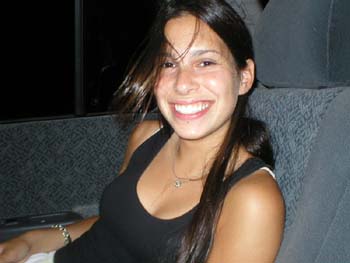 Jaclyn Linetsky.Photo Credit : Wikimedia Commons
Jaclyn Linetsky.Photo Credit : Wikimedia Commons -
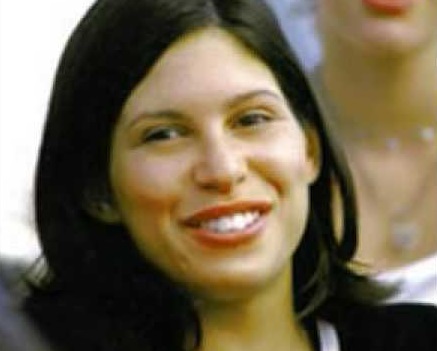 Jaclyn Linetsky.Photo Credit : YouTube
Jaclyn Linetsky.Photo Credit : YouTube
Jaclyn Linetsky
Montreal actress Jaclyn Linetsky was a rising star when she died in a tragic car crash at 17; she is best known for playing Megan O’Connor on the TV show 15/Love and being the voice of Caillou on the preschool animated series of the same name.
Linetsky was born at the Jewish General Hospital to parents Terry Weiner and Larry Linetsky. She and her two siblings, Kelly and Derek, grew up in the Montreal suburb of Hampstead. She attended St. George’s High School and was valedictorian of her graduating class in 2003.
Linetsky began acting in plays at the age of eight. By 10, she had done a radio milk ad. By 14 she had become the voice of the title character on Caillou, which was broadcast in over 72 countries. She also did voice over work for shows such as The Kids from Room 402, Daft Planet and Mega Babies, and videogames like Alex Builds His Farm and Evolution Worlds.
In 2003, Linetsky started work on 15/Love. She and her co-star, Vadim Schneider, were on their way to the set when the driver of their van lost control and crashed. Both teens were killed instantly.
After Linetsky’s untimely death, the drama program at her former high school was renamed the Jaclyn Linetsky Performing Arts Program in her honour.



